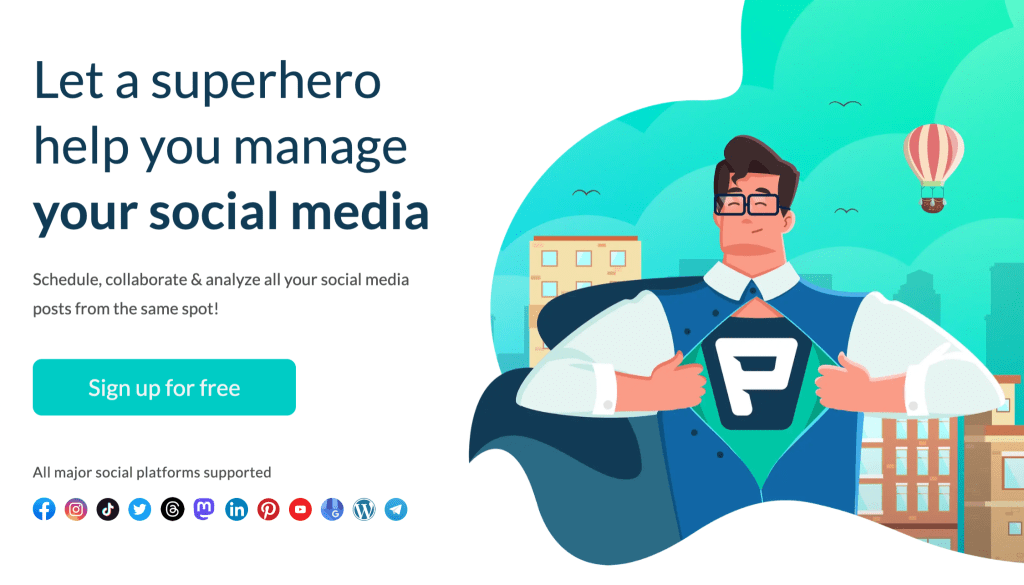
Facebook Groups have become an important space for online communities, stimulating discussions, collaboration, and building connections around shared interests.
But a recent announcement by Meta, Facebook’s parent company, has shocked the Groups ecosystem – the deprecation of the Facebook Group API, effective April 22nd, 2024.
This decision has left developers and users trying to understand the implications and navigate the new landscape. Let’s dive deeper into the unfolding story, explore the official statements, and find solutions surrounding the API shutdown.
The Announcement of Facebook Group API Changes

On January 23rd, 2024, Meta unveiled the Facebook Graph API v19.0, which included an unexpected bombshell: the deprecation of the Facebook Group API. This API served as the backbone for numerous third-party social media management tools, allowing businesses and social media managers to schedule posts, manage content, and analyze data within Facebook Groups.
The news sparked immediate outrage and confusion. Articles like the one on TechCrunch highlighted the uncertainty amongst developers and businesses. Companies, both small and big, which relied heavily on the API for scheduling client posts, expressed concerns about the financial impact. Social media marketers are now worried about their ability to efficiently manage their clients’ Facebook Groups.
Why Did Facebook Shut Down Groups API?

The announcement about removing the Facebook Group API caused a stir among developers, but Meta hasn’t explained exactly why they’re doing it. This lack of explanation has led to a lot of speculation within the developer community.
Some experts believe the move aims to streamline user experience and prioritize features within Facebook’s own platform. By eliminating third-party tools, Meta might apply greater control over the user journey within Groups.
Additionally, concerns around user privacy and data security might have played a role. By limiting access through third-party apps, Meta could be aiming to have more control over user data within Groups.
The Impact on Users: Potential Decline In Quality Content And Engagement
The impact of the API deprecation on Facebook Group users is multifaceted. Social media managers and businesses with a heavy reliance on scheduling tools will likely face disruptions to their workflows. However, for casual Facebook Group users, the change might be less noticeable.
On the other hand, some users express concerns about the potential decline in content quality and engagement within Groups. Third-party tools often offered features like analytics and post optimization, which some users relied on to curate high-performing content for their Groups. Without these features, maintaining engagement might become more challenging.
Potential Benefits of the Change: A Shift in Focus?
While the initial reactions from developers and users have been predominantly negative, some experts believe the API deprecation might have unforeseen benefits. Here are a few perspectives to consider:
- Improved User Experience: By limiting third-party access, Meta might be aiming to create a more streamlined and unified user experience within Facebook Groups. This could potentially lead to a cleaner interface and a more intuitive user journey for both content creators and consumers.
- Enhanced Data Security: Concerns around user privacy and data security have been a major talking point in recent years. By restricting access through third-party apps, Meta might be taking steps to tighten its data security protocols within Groups. This could be a positive development for users who value their privacy.
- Focus on Organic Growth: The deprecation forces a shift in focus towards organic content creation and fostering genuine engagement within Groups. This could potentially lead to a more authentic and interactive environment within Facebook Groups.
Third-Party Tools Are Exploring Their Options

Despite the challenges, the developer community hasn’t thrown in the towel. Third-party scheduling tools are actively exploring alternative solutions that will seamlessly adapt the new changes into the user’s workflow.
While direct scheduling is no longer possible, some tools like Publer have come up with creative workarounds, such as push notification systems that remind users to publish pre-created content within the Facebook app. This method ensures you can continue scheduling content and keep your Facebook Group community engaged. Here’s a step-by-step guide:
How To Schedule Facebook Group Posts With Publer (Through Push Notifications)
1. Connect Your Facebook Group to Publer

Before diving into scheduling, you’ll need to connect your Facebook Group to Publer. This process is outlined in detail in Publer’s help center article: How to Connect Facebook Groups.
2. Schedule Facebook Group Posts

With your Facebook account connected, navigate to Publer’s Create tab. Here, you can craft your message for your Facebook Group, just like you would normally. Add engaging visuals, emojis, and any relevant links to capture your audience’s attention.
3. Set Your Preferred Date and Time

Once your post is ready to go, schedule it for your desired date and time. Publer offers four scheduling options for Facebook Groups.
- Manual scheduling, which allows you to select the time and date for your post.
- Auto scheduling, which uses predefined timeslots on the platform to schedule Facebook Group posts.
- Recycle scheduling, which allows you to repost your content indefinitely.
- Recurring scheduling, which reshares posts for a limited time.
4. Get a Reminder on Your Phone at the Right Time.
At your scheduled post time, Publer won’t directly publish the post within your Facebook Group. Instead, you’ll receive a handy push notification straight to your mobile phone. This notification serves as your reminder that it’s go-time for your scheduled post.

Tapping the push notification takes you directly to the Facebook app, eliminating the need to switch between apps. Here’s the beauty of Publer’s workaround: your pre-created content, images, and any additional details you included will be conveniently pre-loaded on your clipboard and media gallery.
6. Review, Personalize, and Publish
With your content waiting to be pasted, you can take a final look to make sure everything appears as intended. Feel free to personalize the post further if needed, by adding a closing line or including other posting features like location, tagging, etc. Once you’re happy, simply hit publish, and your post will be live within your Facebook Group!
Benefits of Publer’s Push Notification System
With direct scheduling no longer an option, Publer’s push notification system offers several advantages that can streamline your workflow and keep your Facebook Group thriving:
- Maintain Posting Consistency: Even with the additional step of tapping the notification, Publer makes sure you don’t miss your scheduled posting times. Consistency is key to keeping your audience engaged, and Publer helps you stay on track.
- Convenience and Efficiency: Pre-written content within the notification saves you precious time and effort when it’s time to post. No more scrambling to remember what you wanted to share or recreating your post within the Facebook Group.
- Mobile-Friendly Workflow: The entire process is optimized for mobile devices. Whether you’re catching a train or grabbing a coffee, you can manage your Facebook Group on the go, ensuring your community stays informed and engaged.
Remember: While Publer’s workaround offers a fantastic solution for scheduling Facebook Group posts, it’s always a good practice to stay updated on Facebook’s policies and potential future changes.
Subscribe to Publer’s Newsletter and receive the latest happening in social media.
Looking Beyond the API: Exploring New Strategies for Community Building
The API deprecation serves as a wake-up call for businesses and users alike. It highlights the importance of not relying solely on a single platform for community management. Here are some key takeaways:
- Diversifying Social Media Strategies: Exploring alternative social media platforms like Instagram, and Twitter, or even creating a dedicated blog can build you a more well-rounded online presence, reducing dependence on a single platform’s functionalities.
- Building Direct Relationships: The API deprecation emphasizes the importance of nurturing direct connections with your community members within Facebook Groups. Encouraging organic interaction and engagement goes a long way in building a thriving community.
- Focusing On Quality Content: Building relationships online is much more than just showing up on screens and hoping for as many eyeballs as you can gather. Quality content is crucial in developing healthy and rewarding relationships with clients, leads, and audiences online.
Conclusion
The Facebook Group API deprecation is undoubtedly a significant change for the Group’s ecosystem. However, it doesn’t necessarily spell the end of effective community management or engaging content within Facebook Groups.
This situation serves as a reminder of the dynamic nature of online platforms. While established platforms and functionalities evolve, new opportunities and solutions are constantly emerging. By staying informed, adapting creatively, and focusing on building genuine connections, you can ensure that your Facebook Group continues to be a vibrant hub for your community.
Even with the Facebook Groups API deprecation, Publer’s push notification system ensures you can still schedule Facebook Group posts and keep your community engaged. Remember, consistency is key! So, leverage Publer’s mobile app and adapt your strategy to maintain a thriving Facebook Group.








